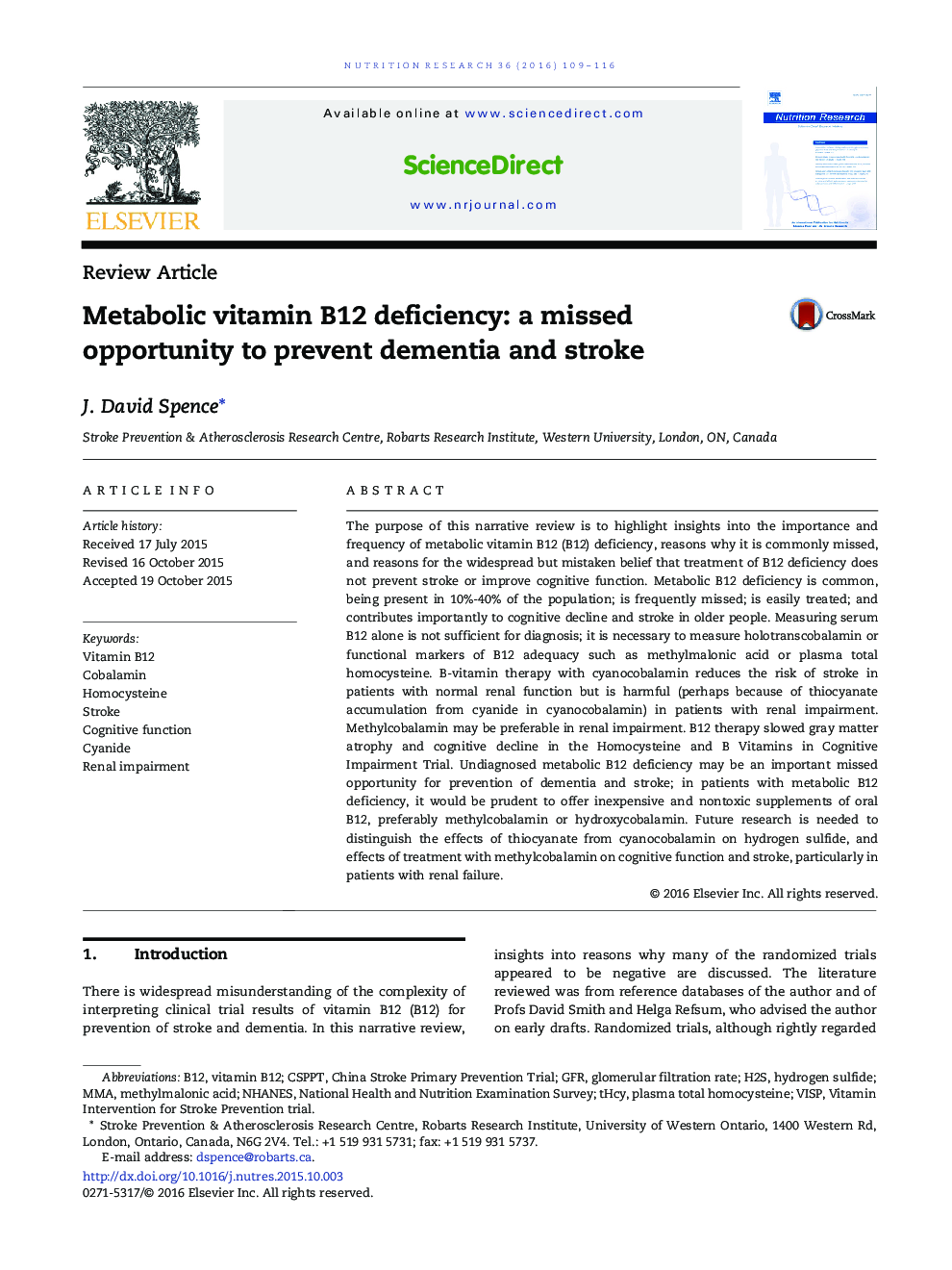| کد مقاله | کد نشریه | سال انتشار | مقاله انگلیسی | نسخه تمام متن |
|---|---|---|---|---|
| 2808870 | 1157977 | 2016 | 8 صفحه PDF | دانلود رایگان |

The purpose of this narrative review is to highlight insights into the importance and frequency of metabolic vitamin B12 (B12) deficiency, reasons why it is commonly missed, and reasons for the widespread but mistaken belief that treatment of B12 deficiency does not prevent stroke or improve cognitive function. Metabolic B12 deficiency is common, being present in 10%-40% of the population; is frequently missed; is easily treated; and contributes importantly to cognitive decline and stroke in older people. Measuring serum B12 alone is not sufficient for diagnosis; it is necessary to measure holotranscobalamin or functional markers of B12 adequacy such as methylmalonic acid or plasma total homocysteine. B-vitamin therapy with cyanocobalamin reduces the risk of stroke in patients with normal renal function but is harmful (perhaps because of thiocyanate accumulation from cyanide in cyanocobalamin) in patients with renal impairment. Methylcobalamin may be preferable in renal impairment. B12 therapy slowed gray matter atrophy and cognitive decline in the Homocysteine and B Vitamins in Cognitive Impairment Trial. Undiagnosed metabolic B12 deficiency may be an important missed opportunity for prevention of dementia and stroke; in patients with metabolic B12 deficiency, it would be prudent to offer inexpensive and nontoxic supplements of oral B12, preferably methylcobalamin or hydroxycobalamin. Future research is needed to distinguish the effects of thiocyanate from cyanocobalamin on hydrogen sulfide, and effects of treatment with methylcobalamin on cognitive function and stroke, particularly in patients with renal failure.
Graphical AbstractPlasma total homocysteine increases at serum B12 levels less than 300-400 pmol/L. Only 26% of patients referred to a stroke prevention clinic had serum B12 levels greater than 400 pmol/L. Among patients with serum B12 in the borderline range, tests of functional B12 such as holotranscobalamin, methylmalonic acid, or (in folate-replete patients) plasma total homocysteine are necessary to exclude metabolic B12 deficiency.Figure optionsDownload high-quality image (158 K)Download as PowerPoint slide
Journal: Nutrition Research - Volume 36, Issue 2, February 2016, Pages 109–116